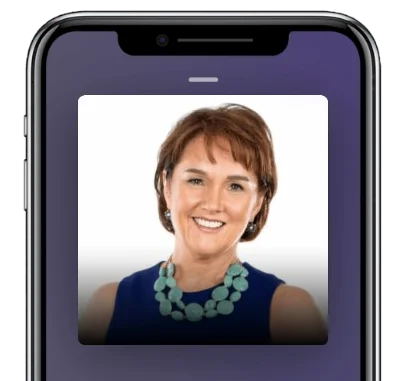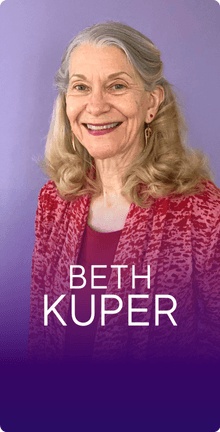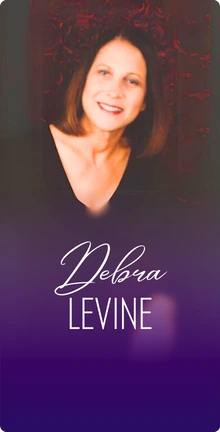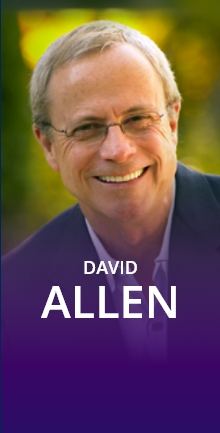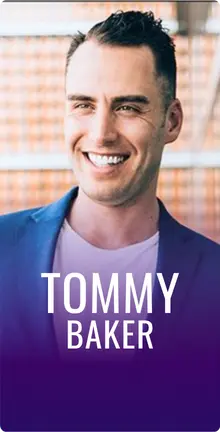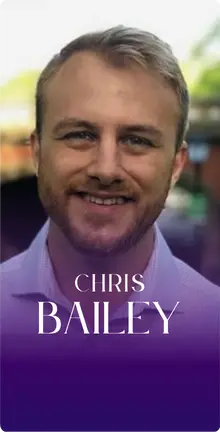In this Episode
- [02:36]Irené talks about the uniqueness of StrengthsFinder and its impact on her life and sphere of influence.
- [05:45]Stephan wants to know how Irené perceives awareness, uses it to her success and helps her clients.
- [12:31]What are some ways in which different strengths can complement one another?
- [26:06]Irené shares some of the results from her clients who have taken the learning and the opportunities she presented.
- [32:25]Stephan discusses the hero’s journey and mentions some methodologies from other people, such as Enneagram.
- [40:22]What is Irené’s perspective on the Laws of Attraction?
- [43:35]Irené gives her thoughts on tapping into our supercomputer.
- [46:15]If you know your top 5 Gallup Talents and would like to understand them better for yourself and how to optimize for your team, send them to Irené’s email, ir***@*********************ng.com, for a special Profile and Consulting Session. Visit turtleexecutivecoaching.com to learn more about their services.
Hello, and welcome to Get Yourself Optimized. I’m your host, Stephan Spencer. Today, it’s my distinct pleasure to have Irené Turtle with us.
Irené is an executive and team coach with clients globally. Irené provides individual coaching for leaders and systemic team coaching. In addition, she works with teams as a facilitator, workshop leader, and team coach. She helps them increase their awareness and ability to work well together and operate at a high-performance level.
Irené, it’s so great to have you on the show.
Thank you so much, Stephan. I’m delighted to be here.
You’re a fan of Gallup StrengthsFinder, as am I. I know my five top strengths by heart. However, many of our listeners, I’m guessing, are unfamiliar with StrengthsFinder.
There are many different kinds of personality assessments out there. I discussed some of them in past episodes. For example, DiSC, Kolbe, Myers-Briggs, and PRINT. Those are just a handful of what I’ve spoken about. StrengthsFinder, we have spoken about as well, but not in as much depth. We had an entire episode about PRINT, for example, from the co-creator of PRINT, Debra Levine.
What makes StrengthsFinder so incredibly valuable and different from all the other assessments, like Predictive Index and everything else?
Focus on your strengths. That’s what’s going to make you successful.
Like many coaches’ stuff, I’m a bit of an assessment junkie, but I love StrengthsFinders CliftonStrengths because it helps people understand their natural talents.
I believe that to change something, we must be aware of our talents and what we’re good at. Unlike many other assessments, I think it really measures what you are intrinsically good at. The whole philosophy (as you know) behind it is that if you focus on your strengths, that’s what’s going to make you successful.
Many of us in our culture is all about focusing on instead of the four A’s and the D, you come home with the four A’s and the D, and everybody focuses on the D. We’re told to focus on our weaknesses and get better.
What I love about it is the philosophy. I’ve seen it work so many times over with myself and with other people. If we focus on our talents and turn those into strengths, that will make us successful, and we’ll hopefully end up doing what we love and being good at it. That’s the goal, anyway.
Having talented people on your team and knowing what those talents are gives you an extra edge and advantage as a leader. Share on XHow did you come across StrengthsFinder? How did it enhance your life before you decided to help spread it to your clients and in your sphere of influence?
I suppose there’s a bit of a detour. I’ve taken it, I liked it, and like most people, I took it, stuck it in a drawer, and went, “oh, that’s really fantastic. Love this.” Yes, that kind of sounds like me. But I didn’t do much with it until I got introduced to a woman called Candace Fitzpatrick, who you may have heard of. She developed a methodology called CoreClarity.
Candace is in Dallas. She’s brilliant. What she did was take StrengthsFinder—or what they call now Gallup CliftonStrengths—and use it in an enhanced way.
I’m probably not doing her justice because it’s a fantastic system. Before Gallup, I believe Candace was using colors. It’s in a system. It helps dig deep and helped me understand myself.
I thought that as a coach, I was pretty self-aware, but it took my awareness of myself to a whole new level. I’ve used it with many of my clients, which helped them understand why they do the things they do naturally and why some things just don’t work. Again, going back to the philosophy that working on your talents and using them will make you much more successful.
Our power lies in helping people understand their talents and how they can propel themselves forward. If you know yourself better, you'll be able to use that understanding to figure out why you're experiencing roadblocks. Share on XLet’s talk about awareness because it’s just such a game changer to have a level of awareness that you walk through life aware of the impact that you’re having on how you make people feel. People remember you not for what you tell them but for how you made them feel and how they felt around you. That’s what they remember. So if you’re aware of that, that’s amazing.
To have that awareness 24/7 is pretty hard, but then there’s this meta-level of awareness where you’re aware of your awareness. That’s an even bigger game changer. That’s hard. You get sucked into the moment so much that you forget you’re the observer and occupying a body. You’re just in your body, in the scene, and you’re forgetting that you’re also an actor playing the script in that scene.

What are your secrets to success in having that meta-awareness about yourself and just staying in regular awareness of your impact on others?
It’s a little play on words, the awareness of being aware. Growing up, it took me a while to realize that not everybody has that level of awareness.
Some people don’t see, hear, or intuit things that you or I might do.
Again, with talents, we think everybody has the same talents as we have, but they have things that we don’t have. So I think it was knowing, becoming aware that I had this and that was my talent, that I could use that to help other people become more aware because, as I said, not everybody is. Some people don’t see, hear, or intuit things that you or I might do.
That’s our secret sauce, if you like. That’s our ultimate talent. It’s to help others develop, maximize, or optimize it as best I can. I don’t know if everybody can do that. People, first of all, have to want to see the benefit of it.
How do you help your clients see the benefit of it and shift into that new level of awareness versus just taking the StrengthsFinder or CliftonStrengths assessment, seeing their top strengths, and saying, oh, that’s cool, that feels right, and then they stick it in a drawer and do nothing with it?
That’s where CoreClarity comes in because it helps them understand how the whole combination works together. With CoreClarity, there are things called core drills. For example, in my core drill, I don’t have what we call orange talents. Those are the get-into-action talents. I think I have one in my top 10. Without those, my core drill is called a Passionista. That means if I’m not really, really excited about something and passionate about it, I won’t do it, or I will do it very badly. But most of the time, I just don’t want to do it.
That helped me understand why there were some things in my life, especially as a solopreneur, that just didn’t get done well or some often didn’t get done. It seems obvious. Everybody thinks, “oh, I don’t like to do the things I don’t like to do,” but with a lack of those orange action talents, it’s much more difficult.
Helping people understand their talents and how the combination of them shows up in them and how that can propel them forward or hold them back is where CoreClarity is powerful. Because if you understand yourself better, you’ll be able to use that understanding to figure out why you’re not being successful or not achieving some of the things you’d like to do.
The powerful thing that I love to do is to help people focus on other people that they interact.
I think that’s where I’ve been able to help a lot of people using that because assessments, for the sake of them, I don’t know whether you’ll agree or not, but it’s like taking a blood test. It gives you a lot of information. It doesn’t tell you how to get better. It doesn’t tell you what medicine you need to take. It just gives you information.
I think this is powerful because you can really use it. You can use it every day not only for yourself but if you lead or work on a team, just understanding other people.
The powerful thing that I love to do is to help people focus on other people that they interact. So whether we’re influencing, communicating, trying to lead a team, or working as part of a team, it’s not just about us as individuals. It’s about the other person. It’s about the connections. It’s about how we show up, how we listen to other people, how we interact with them, how we take their perspectives, their goals, or aspirations, and how that all works into the success of the whole team, the whole project, or whatever it is we’re working with.
These different strengths that we have to interact with each other can form a beautiful synergy, or they can work against each other (I suppose) or counter objectives. So I’m curious to hear how some strengths work together and some don’t mesh well together. What’s your experience with that?
My number two is Strategic. For example, I tend to see the big picture easily. I can go from 1 to 10 relatively easily. I may miss a lot of stuff between the 1 and the 10, but I can see the big picture. I can get to the vision and the end goal.
Analytical is another talent. They’re all great. There’s no bad talent, but if you’re analytical, you may have to go through every step. Also, if you have Input which means you like a lot of information, those two talents can really rub someone with Strategic the wrong way because we’re just saying, “Okay, I’m there. I can see where I need to go. I don’t need all that information.”
The truth is we need to work together, but we can rub each other the wrong way because people with those talents might be going, “oh, she’s going way too fast. She’s missing the point. She’s missing all this critical information.”
It’s not that they’re good or bad. It’s just working together if you understand that people on your team have those other talents and know that it’s actually very valuable to have them so that you can work together. But if you don’t understand and think that person is just really annoying or another long-winded story, you might think they’re a windbag, and they might think you’re irritable and short-tempered.
That’s one example, but if you have very action-oriented people who automatically go to action rather than analyzing something, some might have more green talents. For instance, I work with a lot of technical people and engineers. They tend to have a lot of green talents, which are internal processing talents.
We need all of the talents. Some people have talents that are in different areas. Still, often on a team, especially with maybe engineers or technical people, they may all have talents in the same category. Then you get groupthink, you perhaps aren’t able to communicate those ideas, or you’re unable to put them into action.
Having people with all of the talents on your team and knowing what those talents are, you can decide and know better as a leader or as a group. So, for example, don’t put Stephan on that because he’ll think about it all day, or don’t put Irené on that because she’ll talk about it all day. But we need all of us and all the other people with other talents as well.
Right. My top five strengths in StrengthsFinder are Futuristic, Input, Ideation, Strategic, and Learner. I think it’s like a perfect storm opportunity where I can use Input as an endless file cabinet of ideas and different kinds of campaigns that have been successful or not successful in the past.
I’ve got a huge storehouse of these different experiences, case studies, campaigns, et cetera. I pull from that, and then I can fit into or aggregate and combine things strategically. Then, I apply that in a very futuristic way and help clients skate to where the puck is going to be than where the puck was at. I can see trends and how things are unfolding. I can recognize patterns and so forth.
Then, the Ideation ability is to come up with stuff out of the blue. Not just relying on other kinds of campaigns and ideas that come across my path or I’ve generated in the past—but coming up with fresh stuff or innovations at the drop of a hat.
On top of all that, I’m constantly motivated to keep learning, growing, and evolving. I’m a seminar junkie. I continuously like reading and watching videos and things to learn more stuff. I don’t think a day goes by where I’m not learning something new.
I see that combined as a really special superpower. It allows me to go into a client and map out some incredible transformational opportunities for them, not just helping them with their Google rankings but helping future-proof them and giving them opportunities to leapfrog their competition in really innovative ways.
That’s the story I tell myself about those five strengths. What is your view on those five strengths as either supportive or at odds with each other?
Many of them in the CoreClarity world are green talents, which are how we process internal ideas, concepts, etc. If I’m not mistaken, as I don’t have my chart in front of me—as I was talking about those core drills, I’m a Passionista—I’m pretty sure you’re what we call a Guru because you have all the talents in the green sector. That makes you a bit of a genius.
I’m not trying to flatter you. It’s how it’s categorized. It’s Candace’s brilliance that came up with this in CoreClarity. I probably don’t have time to do it now. It might not be all that interesting for the listeners, but I’d be happy to do a separate little session with you on how those show up.
Having people with all of the talents on your team and knowing what those talents are, you can decide and know better as a leader or as a group.
Basically, your core drill is a Guru, which means you have a real wealth of genius in a specific area. I don’t know you that well, but what makes your life worth living is being able to share that and help other people create the vision they don’t even know they have.
Yup. Before we started recording, I mentioned that I’m always looking for ways to reveal light in everything I do, including the podcast episodes for the show.
There’s another assessment modality that has colors in it. I wonder if it’s an assessment as much as it’s more of a framework. It’s called Spiral Dynamics. I learned about it from Tony Robbins. I will have one of Spiral Dynamics’s co-creators on this podcast in the next few months. So I’m looking forward to that.
That has colors associated with the different levels. I think there are eight levels. I think level five is green, below that is orange, above that is yellow, et cetera. If you’re, let’s say, at the level of blue, which I think is four, you’re very rules-based. If you’re below that, level three, I think, is red. Reds get really hot-tempered, and they see red essentially, on the wrong side of them.
But then somebody who is green is very environmental. But, still, they don’t know how to integrate that with making money, growing a business, and balancing the triple bottom line, so they end up going to Shakti Fest, Burning Man, and what have you, but they have trouble paying their bills.
I’m being too general or prejudiced, but that’s my understanding of these different levels. I’m going to get a better understanding of it when I interview my guest on this topic. What is your knowledge of Spiral Dynamics in relation to what you’ve been studying with CoreClarity? Is there any relation between those two?

I have to admit that I haven’t heard of it, and I haven’t come across it. But, as I said, I’m a bit of an assessment junkie, so I’ll be listening to your episode on it because I’d love to learn more.
I can’t speak to the interaction. Many assessments measure personality, communication style, or ability to influence. That’s one that I’ve been working with recently in terms of how we communicate, whether it’s with authority, empathy, transparency, et cetera.
While I have a great commitment or passion for CliftonStrengths and CoreClarity, I use them because I see the results and am passionate about them. As I said, I won’t do it or use it if I’m not passionate about something.
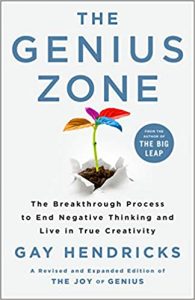
It really speaks to me because it’s not that complicated. Some of the other tools that I use are quite complicated, especially some of the personality assessments. I think they all work together, but I try not to get too hung up on the vehicle because, for some people, the system you’re talking about might be a game changer.
For some people, Myers-Briggs, Hogan, or Kolbe might be the key to more awareness. But, again, it’s just finding something that speaks to you. You’re a learner, and I’m a learner, so we’re always going to explore different things. The key is that it’s a vehicle and a tool, but it’s what speaks to you and gives you the most enlightenment or greater awareness.
It’s one thing to have that, and it’s another thing to put it into action and see some results from it. Because I’m very results-oriented, if you’re learning something for the sake of it, but especially from a coaching perspective, if you’re unable to translate that into greater impact for yourself, your team, organization, nonprofit, family, or friends, then it’s just information.
Yeah. Information instead of transformation. I’m curious if you can give some examples of results that you’ve gotten for your clients that they were able to take the learning and the opportunities that you present to them—the new awareness that they were granted—and turn it into action into results.
Many people I work with, some people are very self-aware, but as we’ve talked about, it’s just those aha moments. For example, for people who have the core drill that I have, Passionista, I’m thinking of a couple of clients who are just like me. I could relate to them, and I have a lot of time to have that profile.
Again, we’re conditioned to think we should be good at everything and that if we’re not good at something, we’re failing. Helping people understand whatever path they’ve chosen, if it’s not right for them, maybe because they’re trying to use talents they don’t have or don’t have in their top 5 or 10.
We’re conditioned to think we should be good at everything and that if we’re not good at something, we’re failing.
For one person in particular that I’m thinking about, it was trying to peel away all those layers of, oh, I should be a doctor, a lawyer, or an engineer because that’s what everybody else in my class was. That’s what my parents wanted me to do.
In one particular case, a young man had some learning difficulties. He’s a very bright guy, but his brain didn’t work like other people’s and everybody he went to school with. So he went to law school and Wall Street and always felt like a failure.
We had to peel it all back and find out what it was. We knew his natural talents, but what did he love to do? So there are all these layers of what success looks like, what we should do, what’s expected of us, or what we think will make us happy. Fortunately, with this guy, he was probably around 30. He hadn’t gone down the road long enough so that he couldn’t come back, and we ended up working with him.
He found out that he loved to work with his hands, create, build, and fix things because he also had Maximizer. So he started his own business, buying houses, fixing them, and selling them. He was doing it to a level that made him happy. It was so different from everything his parents and friends thought he should be doing, but when I asked him, are your friends all happy—they were all either lawyers, or a lot of them were in finance—he said no, most of them weren’t. But he found a level of satisfaction.
I haven’t talked to him in a while, so I don’t know how he is financial. But his level of satisfaction with his life, happiness, and fulfillment was something that he hadn’t experienced in a long time because he was always doing what he thought he should be doing and what everybody else was doing. So it was a huge success because it helped him focus on what made him happy.
Some people need to be successful—whatever that means—to be happy, but many of us want to be happy. It’s not about money. It’s not about status. For some other people, it is, but that was a great success story because he felt so much better about himself. He was so much more confident.
Again, I haven’t talked to him in a while, so I don’t know how he’s doing financially, but that was never really on the list of what was important to him. It was this feeling of being less and not being successful at all things that he had tried thus far. To me, that was a huge success story.
You make a positive impact when people practice the ideas you shared with them, and continue to use your ideas to continue to succeed and, in turn, help others succeed. Share on XThat’s awesome. We have such an impact on people’s lives, and we don’t even realize it. You have a coaching session with somebody, and maybe you don’t even see them again, but it was something you said or some insight you gave them that changed the whole trajectory of their life. We all do this. We all have this kind of contact.
It’s ego on my part, but I haven’t talked to one of my clients in a while, and they say, “oh, I hear your voice in my head all the time, Irené, whatever it is that we worked on.”
It’s important to have a positive impact on other people.
I had one client one time. We stopped working together, and I had lunch with her about a year after our last session. She insisted that I come in and meet all her staff because she said, this is the person I keep quoting to you.
You know you’ve made an impact when people are not just like, “oh, that was an interesting concept or idea,” but they’re putting it into practice. They continue to use whatever you help them uncover to continue to be successful and help others succeed. That impact is there. It’s important to have an impact and a positive impact on other people.
There’s The Hero’s Journey. In the hero’s journey, there’s that stage where the character’s arms are called to action to become the hero. If that person gets the awareness, tool, resource, or insight that allows them to step into that greatness, a whole new world unlocks them. It’s like a new level in the video game. It sounds like the combination of StrengthsFinder, and CoreClarity can provide that.
I’m guessing that Unique Ability, which Dan Sullivan created, can also do that. Dan Sullivan, who created the Strategic Coach, has this whole curriculum around identifying your unique ability, staying in that unique ability as much as possible the vast majority of your day, and giving everything else possible to other team members.
Then, it’s another similar methodology called The Genius Zone. That’s Gay Hendricks. Getting into the zone of excellence is a trap because you’re good at it, so you keep doing it, but it keeps you out of your zone of genius where all the magic happens. That’s my understanding of Gay Hendricks’ work. Are you familiar with either of those?
I’ve heard of them, but I haven’t explored much. I’m familiar with them, but I wouldn’t consider myself all that knowledgeable. They’re familiar concepts as well.
If you're only learning something for the sake of it, then it's just information. Implementation is key to every piece of gained knowledge. Share on XI think the benefit of being a Learner is that you continuously add to that Input, that computer storehouse of knowledge you have, but when you continue to learn you continue to incorporate that into your awareness of yourself and other people. Then, you don’t get stuck in that vortex of being good at something and not exploring further. Even though I’m not too familiar with those particular things you talked about, I’m familiar with them in other forms.
Yeah. They’re compatible concepts, from my understanding. I have not delved in deeply into either one of them myself either.
What about Enneagram? I had a couple of guests talk about Enneagram on the show. They’re very strong proponents of it. I will do an Enneagram deep-dive session. I’ve already booked it with one of my guests, Beth Kuper, the second guest I had talking about Enneagram on the show. She’s phenomenal, so I’m looking forward to that.
I’ll have a better sense of the value of Enneagram as an assessment and as a way to put it into action after I do that insight session and a couple of hours of work. I don’t know what it will be like, but I’m excited to try it out.
Do you have anything to share about Enneagram?
The benefit of being a Learner is that you continuously add to that computer storehouse of knowledge you have. When you continue to learn, you continue to incorporate that into your awareness of yourself and other people.
I’ve done a couple of Enneagram workshops, which are fascinating. What’s so interesting about it is that its thousands of years old. It’s been around long before most of the other things we’ve talked about were even a kernel. It’s ancient wisdom.
I think there are some overlaps between the numbers of the Enneagram and certain talents and core drills. I was very resistant to the fact that I was a One, and I kept wanting to be something else, but when it came down to it, I realized I was a One.
If anyone doesn’t know what an Enneagram is, we tend to want everything to be great, and we can be a little controlling for other people, but then there are only subsets. So there’s a lot of overlap between some personality assessments and the CliftonStrengths and CoreClarity.
Again, it’s fascinating. I love studying it. It’s not my go-to. Because I’m a Maximizer, I must know as much as possible about something before using it extensively. I don’t feel like I know enough about it to use it, or maybe it just doesn’t speak to me as much as some of the other tools I use more often, but it’s really valuable. You can’t dismiss something that’s been around that long and has had the staying power that it does.
It’s like anything. There’s the first level, and then there are all the subsets of it. But, again, what is valuable about it is the aspects of your personality, how you show up when you’re under stress, and how you show up when you’re relaxed, having fun, and all of that.
We’re also complex. We’re not one thing; we’re not one personality. We’re not one number. We’re all of these things. So what’s rich about it and what’s so fascinating about it is all the different aspects of it.
What is valuable about it is the aspects of your personality, how you show up when you’re under stress, and how you show up when you’re relaxed, having fun, and all of that.
If the goal is to increase your awareness for yourself and others, whatever tool you use—Enneagram, CliftonStrengths, Myers-Briggs, or DiSC. I think that where the value is in helping you know more about yourself, how you can use your talents and your personality, and all the things that make you you, how to make that a better version, a stronger version, more influential, or to help make you happier and more successful in whatever it is that you do.
And more benevolent.
Yeah. I think it’s hard to be benevolent when you’re miserable.
Maybe. Although if you have the desire to be benevolent even when you are miserable, it’s a great way to snap out of the hard time that you’re going through when you’re focused on others. It’s hard to process if you’re focused on other people’s welfare.
I’m curious to hear what other ancient wisdom you’re attracted to that you have been studying or incorporating into your life or the lives of your clients.
Some things that intrinsically interest me are just the law of attraction. For someone who likes to control things and someone who thinks they’re in charge—and I’ve certainly fallen into those pitfalls more often than not—it’s just that ancient philosophy of being open to different things and being open to attracting different things into your life and different vibrations.
I have read a lot about it, tried to practice it, and did quite a bit of study of Joe Dispenza. I think his whole approach to everything is just fascinating. I haven’t been to one of his workshops yet, but I will one of these days. Different vibrations are being opened and just different ways of showing up. When you’ve been brought up in a certain way with certain disciplines and different ways of thinking about things, and you’re in charge of your destiny, just being open to those things is quite a challenge but also can be very, very liberating.
You’re in charge of your destiny, and being open to those things is quite challenging and can be very liberating.
Yeah. I relate to that. I had an upbringing where there were a lot of rules, dogma, and closed-mindedness. Having that willing suspension of disbelief has led me to so many epiphanies, spiritual awakenings, and everything to be able to try something that may be out of my normal comfort zone or belief system and try something new.
Something that relates to what you’re saying about the law of attraction, being open, and having what Joe Dispenza refers to as the unified field and accessing that unified field or what Carl Jung would describe as the collective unconscious in a way is like you as this amazing learner just taking in all these new modalities, tools, techniques, and so forth. But, yet, we’re this dumb terminal that’s tapped into the supercomputer.
Maybe sometimes we disconnect from the supercomputer. We all do that. We’re just not plugged in and trying to figure it all out on our own, and that’s hard.
Then, there are times when we’re tapped into that unified field to the supercomputer, and that dumb terminal looks smart, can invent new things, get patents for them, and stuff. Do you have any thoughts on that?
There’s an illusion of control that some of us have much more than others.
There’s an illusion of control that some of us have much more than others. So I think the power of trusting your instincts and your intuition about when to—whatever you might call it—let go and let God, give it all up to a higher power, or whatever the language that you use is, and to know that sometimes you have to give yourself permission to unplug from all of that stuff.
I know I’m a doer, so that I can fill the whole day with stuff. Lately, it’s been like you can’t let anything else in until you stop and clear all the noise, all the doing, and all the distractions. But it’s really hard to listen to that, to trust it, and to know that there are times when you have to stop and unplug, figuratively and every other way, from all the noise and the distraction because that’s what it is. It squashes your creativity, intuition, and ability to grow beyond where you are, but it’s challenging.
Yeah, it can be. Joe Dispenza calls it becoming nobody, getting into that space of being nobody in no time, in no place, nowhere, no thing. From that place, you’re tapped in, and you’re part of that collective unconscious and part of the unified field.
Fascinating stuff. I know we’re out of time here. Where does our listener go to work with you, learn more from you, and maybe get that profiling? If they have that Gallup CliftonStrengths assessment already done and want to learn more about how they tick and how they can work better with their team, where should they go?

My company is Turtle Executive Coaching and Leadership Development, so turtleexecutivecoaching.com is where you can find me. There’s a lot of stuff on my website, but reach out, call me, and send me an email. I get so excited about CoreClarity that I can talk for hours about it. I’m really, really passionate about it.
That’s always a good sign that I’m on the right track when I’m excited about something. I’m so excited to share it with other people. I’d be happy to share stuff with you, Stephan, in a separate session when we’re not public.
I would love that, yeah. Amazing. All right, thank you so much, Irené. This is inspiring, powerful, and valuable information that can lead to a powerful transformation. Thank you for that.
And thank you, listener. Go out there, do something amazing in the world, and make it a better place. We’ll catch you in the next episode. I’m your host, Stephan Spencer, signing off.
Important Links
Connect with Irené Turtle
Apps/Tools
Book
Businesses/Organizations
People
Previous Get Yourself Optimized Episodes

